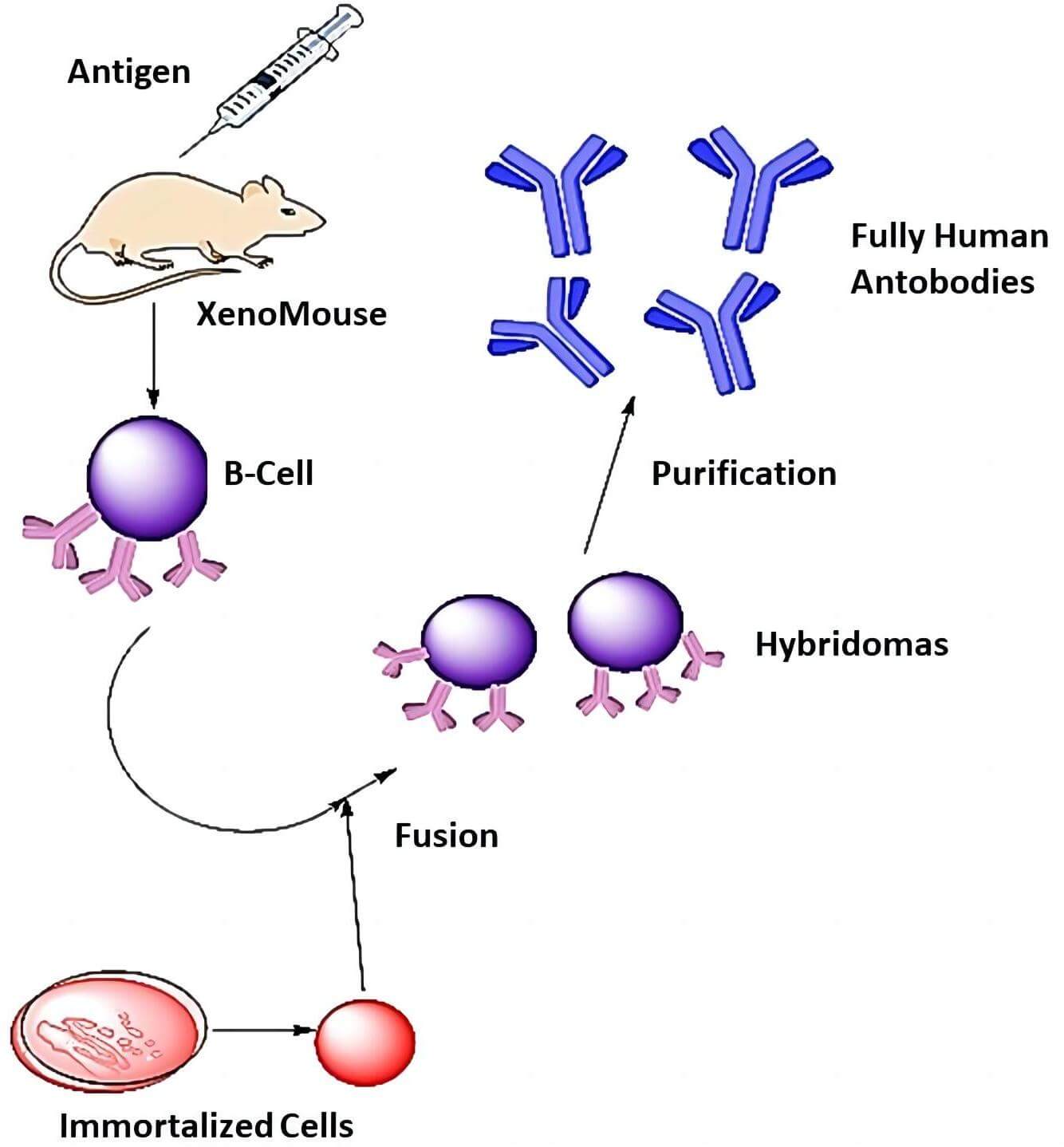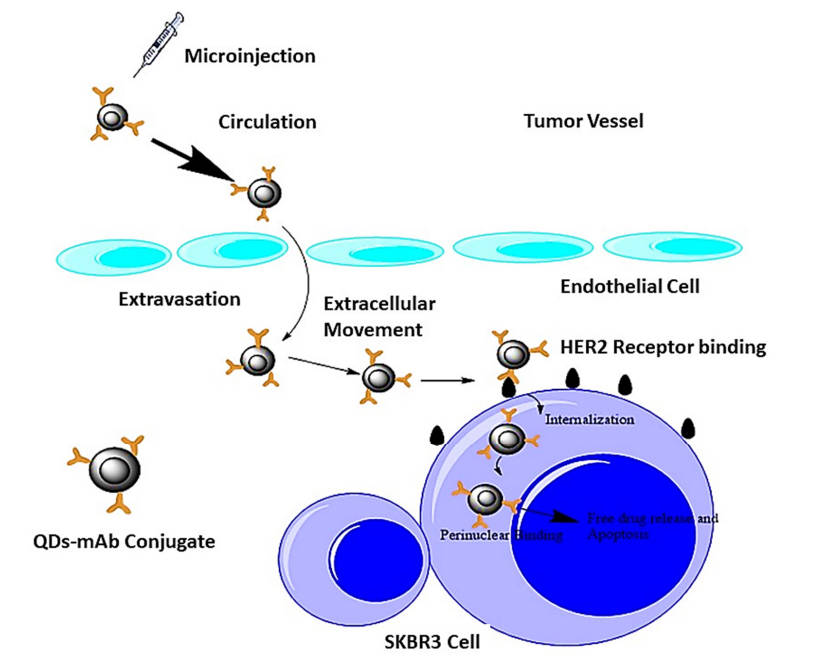Creative Biolabs has a cutting-edge proprietary method for generating hybridomas targeting endogenous proteins. Traditionally, self-antigens or proteins sharing conserved domains across species have posed challenges for hybridoma generation due to limited or absent immune responses. Utilizing "knock-out" mice for immunization has proven effective in circumventing issues arising from sequence similarities across species.
The pioneering advancement in creating human monoclonal antibodies (mAbs) through traditional cell culture techniques has been achieved through the utilization of genetically modified mice designed to express human antibody repertoires. This achievement stemmed from the transchromosomal engineering process, involving the manipulation of endogenous mouse immunoglobulin heavy and light chain loci and the introduction of transgenes encoding human immunoglobulin chains. Over recent decades, advancements have enabled the expression of multiple V gene segments by transgenic mice, expanding the potential repertoire of recovered mAbs.
A subsequent breakthrough has led to the generation of transgenic mice producing human mAbs with diverse heavy chain isotopes. However, immune responses in transgenic mice are occasionally less robust compared to those in normal mouse strains used for generating mouse mAbs. Despite these limitations, this expression system of human immunoglobulins in transgenic mice effectively mitigates undesirable human anti-mouse antibody responses, while retaining the advantages of conventional murine cell culture techniques for potential therapeutic reagent development.
 Fig.1 Hybridoma-derived mAb synthesis in genetically altered mice.1
Fig.1 Hybridoma-derived mAb synthesis in genetically altered mice.1
Our team of scientists boasts extensive expertise in developing knock-out mice with the target gene deleted, thereby eliminating expression of the protein of interest in both embryonic stem cells and adult mice. By immunizing these gene-inactivated mice, hybridomas capable of producing mAbs targeting the "knocked-out" protein and its conserved domains across species can be successfully generated.

 Fig.2 HER2-receptor targeting by QD-mAb conjugate.1
Fig.2 HER2-receptor targeting by QD-mAb conjugate.1
Fatima, Iqra, et al. utilize fully human monoclonal antibodies (Abs) produced in transgenic mice to specifically target malignant cells1. In the case of the HER2 receptor, a particular Ab is employed and conjugated with quantum dots (QDs) through various coupling methods. The resulting conjugate, known as the quantum dot-monoclonal antibody (QD-mAb) conjugate, is administered into the bloodstream to achieve localization. Post-injection, it undergoes a sequence of processes to reach the intracellular space, enabling bioimaging specifically of the HER2 receptor. This process leads to the apoptosis of cancer cells, either through the release of the antibody or the production of free radicals. The QD-mAb conjugate targets the HER2 receptor, followed by internalization via vesicle formation, ultimately resulting in intracellular binding in the final phase.
The efficacy of our gene-inactivated mice service has been robustly validated across numerous projects, facilitating the production and characterization of an extensive array of murine mAbs directed against self-antigens and proteins with conserved domains. Typically, gene-inactivated mice exhibit robust immune responses to recombinant antigens sourced from diverse origins, including denatured antigens, thereby yielding mAbs of exceptional quality and performance.
As published research, Functional inactivation of mouse immunoglobulin gene loci occurs in embryonic stem (ES) cells through targeted gene deletion to generate mice homozygous for the requisite deletions. Subsequent crossbreeding of these transgenic mice (harboring both human and mouse antibodies) with mice deficient in mouse immunoglobulin production yields the strain, which exclusively expresses human antibodies. B cells obtained from immunized strain are fused with myeloma cells to produce hybridomas that synthesize human mAbs. The therapeutic antibody crafted through this transgenic methodology has been used for addressing advanced colorectal cancer.
Endowed with extensive experience in mAb synthesis, Creative Biolabs is recognized as a leader in the field. Supported by our state-of-the-art hybridoma infrastructure, we guarantee the delivery of diverse hybridoma-based services. We enthusiastically recommend you contact us for additional details.
All listed services and products are For Research Use Only. Do Not use in any diagnostic or therapeutic applications.
| USA:
Europe: Germany: |
|
|
Call us at: USA: UK: Germany: |
|
|
Fax:
|
|
| Email: info@creative-biolabs.com |
